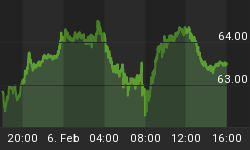Vladimir Putin’s aggression is now believed to be leading to a growing crisis over food insecurity and skyrocketing food prices.
Driven up by the war in Ukraine, global food prices hit their highest recorded levels last month.
In March, global world food commodity prices reached their highest levels ever, the United Nations Food and Agriculture Organization reported late last week.
The FAO Food Price Index was up 12.6% from February when it had already reached its highest level since the agency began tracking in 1990. The latest level of the index was 33.6% higher than in March 2021.
Over the last three years Russia and Ukraine accounted for about 30% of global wheat exports and 20% of maize exports. The sanctions on Russian exports and Ukrainian inability to harvest due to a raging war, have prompted a surge in global prices of wheat and coarse grain.
The FAO Cereal Price Index was 17.1% higher in March than it was in February, while the Vegetable Oil Price Index rose 23.2%, driven by higher prices of sunflower seed oil, of which Ukraine is the world’s leading exporter. The FAO’s Sugar Price Index rose 6.7% followed by the Meat Index which increased by 4.8%.
“Expectations point to the European Union and India increasing wheat exports, while Argentina, India and the U.S. shipping more maize, partially compensating for the loss of exports from the Black Sea region,” the FAO said in the report.
Last week, Indian Prime Minister Narendra Modi told U.S. President Joe Biden that India was ready to ship food to the rest of the world.
In remarks prepared for delivery during the annual International Monetary Fund and World Bank spring meeting, U.S. Treasury Secretary Janet Yellen said that the Russian invasion on Ukraine had made an already dire situation worse.
“Price and supply shocks are already materializing, adding to global inflationary pressures, creating risks to external balances, and undermining the recovery from the pandemic. I want to be clear: Russia’s actions are responsible for this,” Yellen said.
Yellen acknowledged that factors such as conflict, climate change and economic downturns like the COVID-19 pandemic have also contributed to food scarcity, but maintained that the European war had exacerbated the pre-existing supply pressures.
Food security experts fear that Russia's war in Ukraine could cause a surge in severe malnutrition and even starvation far beyond its borders.
Arif Husain, chief economist at the World Food Programme (WFP) recently told NPR that several African and Asian countries will face even further food shortages. According to Husain, even the countries that don't source their wheat, corn or other commodities directly from Ukraine or Russia, will be affected by price increases.
"Any disruption that happens in one place has an effect in another place," Husain said.
In the U.S., “food-at-home” prices are predicted to see an increase of up to 4% by the end of the year, according to the U.S. Department of Agriculture.
Globally, food prices are expected to rise 14% this year, according to the International Monetary Fund (IMF). In its World Economic Outlook paper, the IMF lowered its forecast for global economic growth this year to 3.6%, a reduction from IMF’s January estimate of 4.4% and down from 6.1% growth in 2021.
















